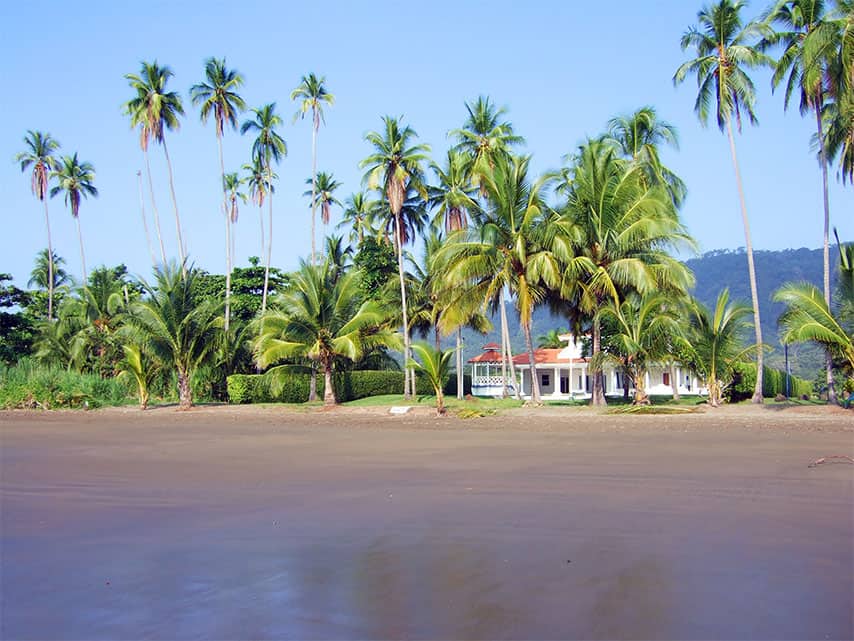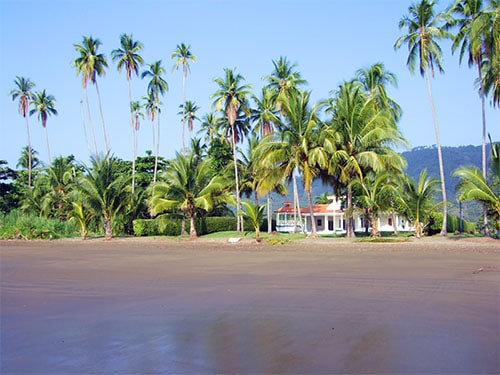
There is a great appeal to living abroad in Central America. Some do it for the thrill of adventure or to experience a new culture or career opportunities, just to name a few. Whatever the reason may be, it is a break from what you know and the chance to push yourself outside your comfort zone.
With the advancements in technology and mobility, it has become increasingly easy to live abroad. According to the market research firm Finnacord, there were 66 million expats in 2017 and that number has only grown over the years.
While there is excitement in living somewhere new, there also come challenges and obstacles that can be ignored. It’s easy to romanticize wandering the streets of Guatemala City or laying on the beach in Playa Grande, but the day-to-day life can and will present hardships for any individual.
Here are eight challenges to consider when deciding to live abroad in Central America.
Language Barrier
A huge factor in making a new place feel like home is communicating with others. However, more often than not, you are moving to a place with a language different than your native tongue. And even if you do speak the language there are different dialects and tone to understand. It can feel isolating living in a place where you do not understand the locals while trying to create connections.
In order to overcome this barrier, there are two things you must do:
First, acknowledge that some experiences will be uncomfortable. You aren’t a native speaker and the locals may have issues understanding you so there is bound to be some awkward moments.
Second, make an effort to learn the language. If you show up to your new home and make attempts to speak their language, you will find yourself feeling more at home and others more welcoming.
Making Friends

Remember when you first arrived at college or moved somewhere new for the first time? The process of making friends likely wasn’t seamless, and the same is true of moving abroad. As an adult, we have fewer points of contact to meet people and make strong connections. This is magnified when you move somewhere with a different culture and with people from many different backgrounds.
Even if you are moving abroad with your current company, it’s going to take time to build relationships. Some areas are more suitable for making friends than others. In Costa Rica, for example, 76 percent of expats said they had no problem making friends. But as this isn’t true everywhere, the best piece of advice is to be realistic and say ‘yes.’
To begin with, you must be realistic in your expectations of making friends. It won’t happen right away and you have to put in the effort for a positive outcome. So when you’d rather stay home and watch Netflix, say yes to grabbing drinks or seeing a concert.
Assimilating to a New Culture
When visiting a new city you get a taste of their culture which is often enlightening and fun. Then you go home and can return to the culture you are deeply ingrained in and comfortable with. When you decide to transplant your life to Central America the same rules do not apply. You are disrupting what you know and putting yourself in an entirely new culture for the long haul.
Therefore, you have the responsibility of learning this culture and adapting to it. In Central America, there are countless cultural experiences and nuances, each catered to the region you are in. This will be difficult at first and likely come with some bumps, but it is ultimately rewarding. Go in with an open mind, questions and the desire to learn and you will find yourself changing for the better.
Health Issues
Depending on where you are relocating there can be health issues that you are unfamiliar with. First and foremost, before going plan ahead to get any vaccinations or medications needed to ensure you are up to date. This will provide a more smooth transition. There may be diseases in the region that your body is not familiar with or a negative reaction to the local cuisine.
Typically these issues will sort themselves out within the first few weeks of arriving but don’t be alarmed if you come down with a bug or feel under the weather. This is common when transplanting yourself to a new place. On top of the unknown germs your body is experiencing, you will also need to navigate the health system. It is highly unlikely that the healthcare system is the same as yours back home, so do your research beforehand to get up to speed.
As a reminder, getting healthcare from a insurance company like Travel Protect International is one of the first tasks you’ll want to do when you arrive. You’ll thank yourself for doing so later when you need a quick appointment with a reputable doctor.
Making an Income
A recent survey found that only 10 percent of expats move abroad with their current company, which leaves millions of others in need of income. This can be one of the more stressful challenges of leaving home and establishing yourself in a new and foreign country. You don’t know the local language, your network has significantly shrunk and you are attempting to learn a new culture.
That alone is overwhelming, but throw in the need to make money and your stress levels are heightened. The unemployment numbers in Central America are fairly high right now, specifically in Nicaragua and Costa Rica, which is something to keep in mind as you plan for your move. The best plan of action is to do as much networking as you can before you leave and continue to do so once you arrive. Finding a job in an entirely new country is not going to be easy – there’s no way around it.
This is especially true if you don’t know the local language, so keep that in mind as you search. However, it is not entirely impossible and as long as you are financially and mentally prepared to take on this challenge, you can find a role that suits you.
Getting Around

As you’ve likely picked up on, not knowing the local language can prove tough in many situations when moving to Central America. This holds true with transportation and getting around. Whether you are using the bus system, taking a cab or simply asking directions on the street, you will run into some challenges.
On the upside, traveling in Central America is relatively cheap compared to other places. For example, if you’re taking public transport from your home to the bank, it will cost you less than one U.S. dollar. Or if you want to take a bus from one city to the next, it will likely be under 30 U.S. dollars. This opens up a world of travel opportunities. Whether going on a quick or long trip, before you leave your apartment, plan the route and method of transportation for the highest success rate.
Nowadays with highly accessible GPS, it’s easier to get point to point. However, there will still be instances when you need a local’s advice which is when common phrases and an understanding of the language is helpful.
Safety
Your mom has likely already asked you about the safety of the new city you’re considering to move to, but have you really thought about it? Rather than brushing her off, get smart on the safety concerns or recent events you should be aware of.
Unfortunately, Central America does have a bad reputation for its safety, which isn’t entirely false. Some of the bigger cities are haunted by violence and being an outsider often makes you a target. Similar to many U.S. cities, gangs are prevalent in certain areas and know who to prowl on. Simply stated: be smart.
If you keep your street smarts about you, then you are less likely to run into safety concerns. For example, don’t take public transportation alone at nighttime, place your valuables in a locked and concealed safe and generally keep your wits about you when in public.
If you feel safer carrying pepper spray, then do. Once you’ve settled in and learned your neighborhood then you will feel more comfortable with how to best protect yourself.
Bureaucracy
On top of the language barriers, isolation and safety concerns, don’t forget that processes are going to be different in your new home. This holds especially true for Central American countries such as Costa Rica. Setting up basic services (ie. banking, cell phone, utilities) may not be as basic as you would expect and hope.
Unfortunately, in many countries, the government has a stronger hold on how businesses do business which can impact your transition. The best advice for navigating these barriers is to research beforehand your options and the barriers that exist.
Also, when you arrive, try and connect with expats who might be able to help you navigate the system. Learning from someone who has gone before you is a major piece of transitioning to a life abroad.
Final Thoughts
Simply put: there will be challenges to moving to Central America as an expat. There will be moments of frustration, loneliness and feeling lost. Don’t allow that to deter you from diving in head first to the unique experience.
Alongside those moments, there will also be times of joy, connection and a deeper understanding of a new culture. You will learn and grow within yourself in ways you did not know possible.


